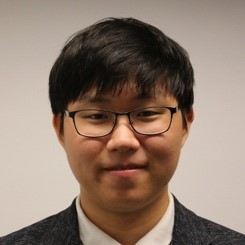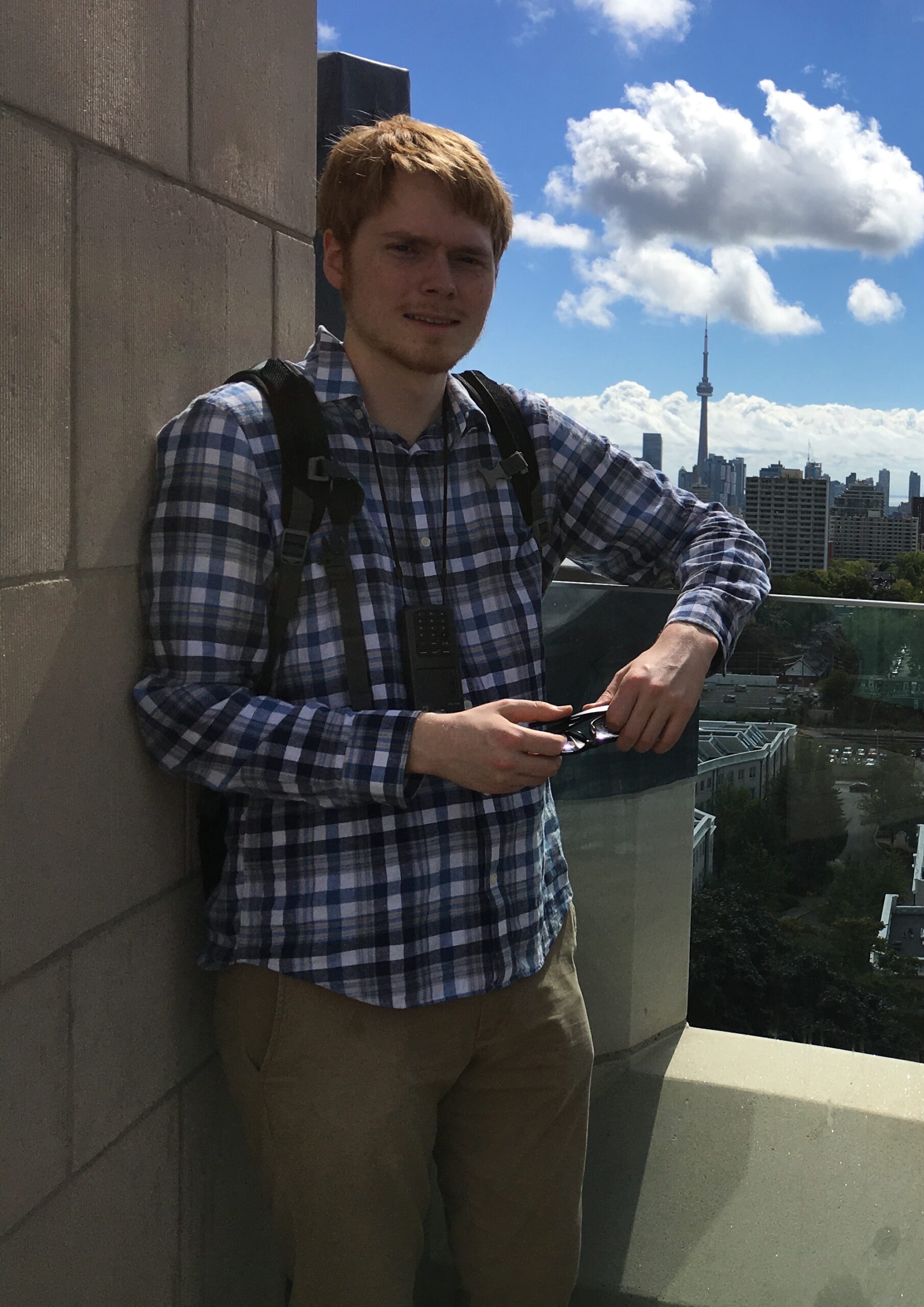Achievement Rewards for College Scientists (ARCS)
Overview
In 1999, Washington State University Graduate School was designated as an ARCS recipient school. The first ARCS Fellowships were awarded to the College of Veterinary Medicine through the Seattle Chapter of ARCS. The Seattle Chapter is one of twelve chapters of the ARCS Foundation which has supported graduate education in the natural sciences, medicine, and engineering.
By offering financial incentives to graduate students, the ARCS program further encourages the study of science, medicine, and engineering at the most prestigious universities in the United States. Since 1958, the ARCS Foundation has awarded over $66 million to support research in the fields of science and technology. Nationally, 14 ARCS chapters support graduate fellowships at 43 universities. ARCS Foundation Fellows possess outstanding scholastic records and proven abilities and receive multiple offers to study at other top national universities.
For more information about ARCS, please visit, the Seattle Chapter (ARCS).







Learn More About our Current Scholars
ARCS Cohort

Jeffery (Tanner) Badigian
Washington Research Foundation (133rd)

Julianna Gilson
ARCS Light in honor of Kitti Lile

Yongjun (Joseph) Kwon
WSU Vice Provost for Graduate and Professional Education

Chloe Leach
Janis Mercker

Taydin Macron
Zevenbergen Capital Investments

Alyssa Maine
Alicia and Jeff Carnevali in Honor of Sophia R. Carnevali (3rd)

Kaylie McCracken
WSU Pullman Chancellor

Peter (Wes) Moughan
Cassa Hanon (2nd)

Caitlin Ottaway
Loch Anderson & Allyn Perkins Second ARCS Endowment (7
th
) Fellow

Karina Pastrana
Washington Research Foundation (134th)

Clare Riley
ARCS Seattle Chapter

Mary Steele
Alice Gautsch Foreman (1st) with Missy and Kurt Zumwalt (2nd)

Brayden Young
Jenny and Scott Wyatt (4th) with Debbi and John Wilson (4th)

Hannah Cook
Jeff & Jana Foushée Family ARCS Endowed Fellowship, Second (3rd)

Cameron Coyle
Eve and Chap Alvord (2nd)

Samantha Dilday
ARCS Foundation Seattle Chapter

Augusta Finzel
Pendleton & Elisabeth Carey Miller Foundation (8th)

Kailie Franco
Rick & Jacque Doane ARCS Endowed Fellowship (6th)

Siena Glenn
Mani Barrier (7th)

Mathew Heaney
ARCS Foundation Seattle Chapter

Tia Hoisington
Zevenbergen Capital Investments (33rd)

Paul Martinez
Ronald and Darlene Howell ARCS Endowed Fellowship, WSU

Haley Masterson
Jim & Trish Rogers ARCS Endowed Fellowship (7th)

Meg Southard
Washington Research Foundation (128)

Natalie Strum
Washington Research Foundation (129)

Marita White
ARCS Foundation Seattle Chapter

Kaylie Barton
Lock Anderson & Allyn Perkins

Kristen Bullough
Aven Foundation

Evan Domsic
Lyndi and Robert Taylor

Steven Edmonds
Catherine Mee

Kyra Parker
Karen Cameron

Alyxandria “Danny” Powell
Marcia McGreevy Lewis/ Connie Niva

Molly Sayles
Karyl & Elias Alvord

Camille Wagstaff
Judy Rogers

Ashley Warren
Kathy & Brooks Simpson

Natalie Yaw
Washington Research Foundation

Kaylee Vosbigian
Lynn and Mikal Thomsen

Kevin Baird
ARCS Foundation Seattle Chapter

Naseeha (Nas) Cardwell
Washington Research Foundation

Allison Herrick
Cassa Hanon

Hope Lackey
Loch Anderson & Allyn Perkins

Colin McDowell
Washington Research Foundation

Nadia McLean
Washington Research Foundation

Lindsay (Gracie) Miller
ARCS Foundation Seattle Chapter

Janice Parks
Ellen Look & Tony Cavalieri

Peter Schmuker
ARCS Foundation Seattle Chapter

Katie Tseng
Alicia & Jeff Carnevali in honor of Sophia R. Carnevali

Alexander Batson
Pendleton and Elisabeth Carey Miller Foundation

Robert Christian
Washington Research Foundation

Holly Drankhan
Rick & Jacque Doane Endowment

Ashley Eberly
ARCS Foundation Seattle

Elizabeth (Elis) Fisk
Joanne and Bruce Montgomery

Brenden Fraser-Hevlin
WSU President’s Award

Andrew Herr
WSU Graduate School Dean Award

Stephanie Johnson
Patty and Jimmy Barrier

Brianne Jones
Washington Research Foundation

Lance Merrick
ARCS Foundation Seattle Chapter

Colleen Monahan
Jeff and Jana Foushée

Kiersten Ritchie
Eve and Chap Alvord

Anthony Savoy
ARCS Foundation Seattle Chapter

Shannon C. Allen
Aven Foundation

Rowan J. Calkins
Washington Research Foundation

Elizabeth Campbell
Lynn & Mikal Thomsen

Shane Carrion
Catherine Mee

Mitchell T. Caudill

Elizabeth (Liz) W. Goldsmith
Lynn and Mikal Thomsen

Dowen Jocson
ARCS Foundation Seattle Chapter

Matthew A. King

Merri Metcalfe
Debbie Girder & Dave Cutler

Katherine Naasko
Amy & Matt Rudolf

Miguel Rosas
Laura & Bruce Bailey

Eduardo J. Sánchez Díaz
Washington Research Foundation

Kayla A. Spawton
Judy & Floyd Rogers

Brent Arnoldussen

Megan Asche

Racehel M. Bone Relat

Cody Cokreham

Sedelia Dominguez

Amanda Foreman

John Hadish

Ellis Hammond-Pereira

Lee Opdahl

George Pearson

Kelly Ramsay

Matthew Romero

Jessa Thruman

Joel Velasco

Halle Weimar

Lori Bedient

Jacob Bray

Johnathan Eagle

Rachel Gewiss

Noe Gomez

James Hepler

Benjamin Lee

Becky Lee

Alice Olson

Mikayla Strauss

Kaitlin Witherell

Tara Burke Lewis

Christal Clements

Rachael DeTar

Matt Marcec

Ryan Oliveria

Nicholas Pokorzynski

Joseph Taylor

Jenny Voss

Naomi Wallace

Brenda Wong

Jessica Wong
2014
Liam Eugene Broughton-Neiswanger
Bushana N. Piryanka
Gregory B. Colllinge
Seanna L. Hewitt
Jeffry M. Hoyt
Nicholas R. Jaegers
Erica Kruse
Alisha T. Massa
Jessica McCrea
Brigid Meints
Robert Orpert
Annie Pollard
Brittney Wager
Laura Beth Artz Williams
2013
Korey Brownstein
Zack Frederick
Andrea Garfinkel
Kathy Kelling
Aileen Helsel
Jessica Higginbotham
Tessa Lecuyer
Adan Medina
Paul Mihalyov
Craigen Nes
Drew Neyens
Elena Skornyakov
Nicole Tatuges
2012
Christian Aguilar
Jacob Elder
Cory Gall
Kendra Gregory Jernigan
Rebecca Holcomb
Kristen Janusz
Shao Lu
Aaron Mahoney
Yvonne Manning
Kathleen McKeever
Nicholas Mueth
Gabrielle Pastenkos
Darin Weed
2011
Aaron Agostini
Lindsay Fry
Kimberly Honn
Benjamin Kilian
Michael Gonzalez
Nevin Lawrence
Gracen Smith
Jacquelyn Stone
Jonathan Watcher
2010
Sierra Beecher
Ryan Boyd
Allison Eavey
Margaret Highland
Erik Landry
Diana Short
Lauren Wise
2009
Zachary Gallaher
Gena Hammac
Scott Schaeffer
Brian Schwartz
Alexa Wakley
Berkley Walker
2008
Katie Boland
Jenny Browning
James Clinton
Steven Ford
Jeremy Jewell
Brian Lee
Atom Lesik
Kaitlyn Morse
Twila Seefeldt
Jasmine Ware
2007
Erin Getzin
Amber Hauvermale
Tyson Koepke
James Murnighan
Robert Olsen
Kristina Podelnyk
Kerry Sondgeroth
Jane Stewart
Sandra Taylor
Laura Wayne
2006
Kyle Cares
Jeremy Dahmen
Shannon Donahoe
Caroline Herndon
Amy Hetrick
Crystal Montoya
Lindsay Muir
Joshua Neumiller
2005
Willow Lindsay
Jessica Milhollan
Danielle Nelson
Marisa Olson
Elizabeth Schramm
Joshua Tompkins
Kenny Wells
2004
Andrew Allen
Tracy Back
Michelle Beck
James Costello
Sushan Han
Seth Harris
Jason Hogaboam
Crystal Lawson Putnam
Ryan Rice
2003
Homer Adams
Shawn Berens
Mary Biddle
Scott Bright
Abbey Davis
Sunshine Lahmers
Job Lopez
Jon Oatley
James Peters
Evan Sleipness
James Stanton
